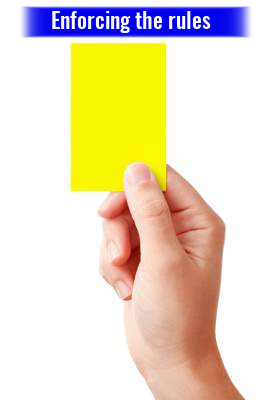Disciplinary and Grievance procedures
Getting it right the first time
Every employer in Ireland has a legal obligation to provide each employee with a written copy of the procedures to be followed when dealing with grievances and discipline at work. Under the Unfair Dismissal Acts 1977 to 2007 this must be given within 28 days after entering a contract of employment.
Most employer cases are lost because the employer failed to follow correct procedures when dealing with an employee.
Having an up to date grievance and disciplinary procedures manual is the first step towards ensuring that expensive mistakes are avoided. The second step is making sure that everyone follows the procedures.
Take the time now to implement a good disciplinary procedures policy or waste time and money in a Workplace Relations hearing trying to defend an unfair dismissal claim which could lead to a substantial compensation payment.
What makes a good disciplinary and grievance procedure?
The following attributes are essential to any effective grievance and disciplinary procedure:
-
It must be fair
-
It must be straightforward and avoid ambiguity.
-
The penalties must be clearly stated.
-
An internal appeals system must be laid out in simple steps.
- It must be in a format and language that is easily understood.
Take it in stages
Generally the steps in a disciplinary and grievance process will be progressive.
When a grievance is first raised, the employee should be encouraged to approach their line manager, in the first instance. Consideration should be given to whether the matter can be dealt with informally. After careful investigation it may be the case that a quiet word will help the offending party see the error of their ways.
If the grievance cannot be resolved informally, then it may be necessary to move to a more formal stage in the process, involving the carrying out of a formal investigation, followed by a disciplinary hearing. The results of the hearing should be communicated to the employee concerned without undue delay. The option to appeal the decision must be offered.
Then if requested by the employee, the appeal hearing must be held in a fair manner, in accordance with the procedures manual.
If a decision to penalise the employee is made, this can be implemented at different stages in the disciplinary scale, depending on the seriousness of the offence.
The penalties usually escalate from oral warning, then a written warning, then other penalties such as, suspension, transfer, demotion or dismissal. Where the breach is considered to be serious, the employer can implement the more serious disciplinary action at an earlier stage. For example, you may have to suspend an employee without starting at the oral warning stage.
The benefits of having a good grievance and disciplinary procedure in place
The importance of having fair procedures in place cannot be overemphasised. The benefits include;
- Where fair procedures are in place and are used consistently, employees tend to feel that their input is valued.
- Proper procedures can provide a framework for measuring performance. When performance falls short, to the extent that it creates a grievance, then either the employee or management can raise it, knowing that it will be dealt with in a professional manner.
- When all parties are familiar with the procedures, then problems tend to be sorted out earlier in the grievance cycle.
- A reputation for fair treatment in the workplace leads to excellent industrial relations.
How can I check if the procedure is fair?
We can review your disciplinary and grievance procedure for you at an agreed cost.
We can draft a new policy for you if you need one.
For a free initial consultation contact us using the orange Tell Me More button below.
See article on Natural justice and discipline here
See article on gross misconduct here
Download a copy of the LRC's Grievance and Disciplinary Procedures Booklet,here
Spread the knowledge. If you found this article useful, please like and share using any of the social buttons below.









